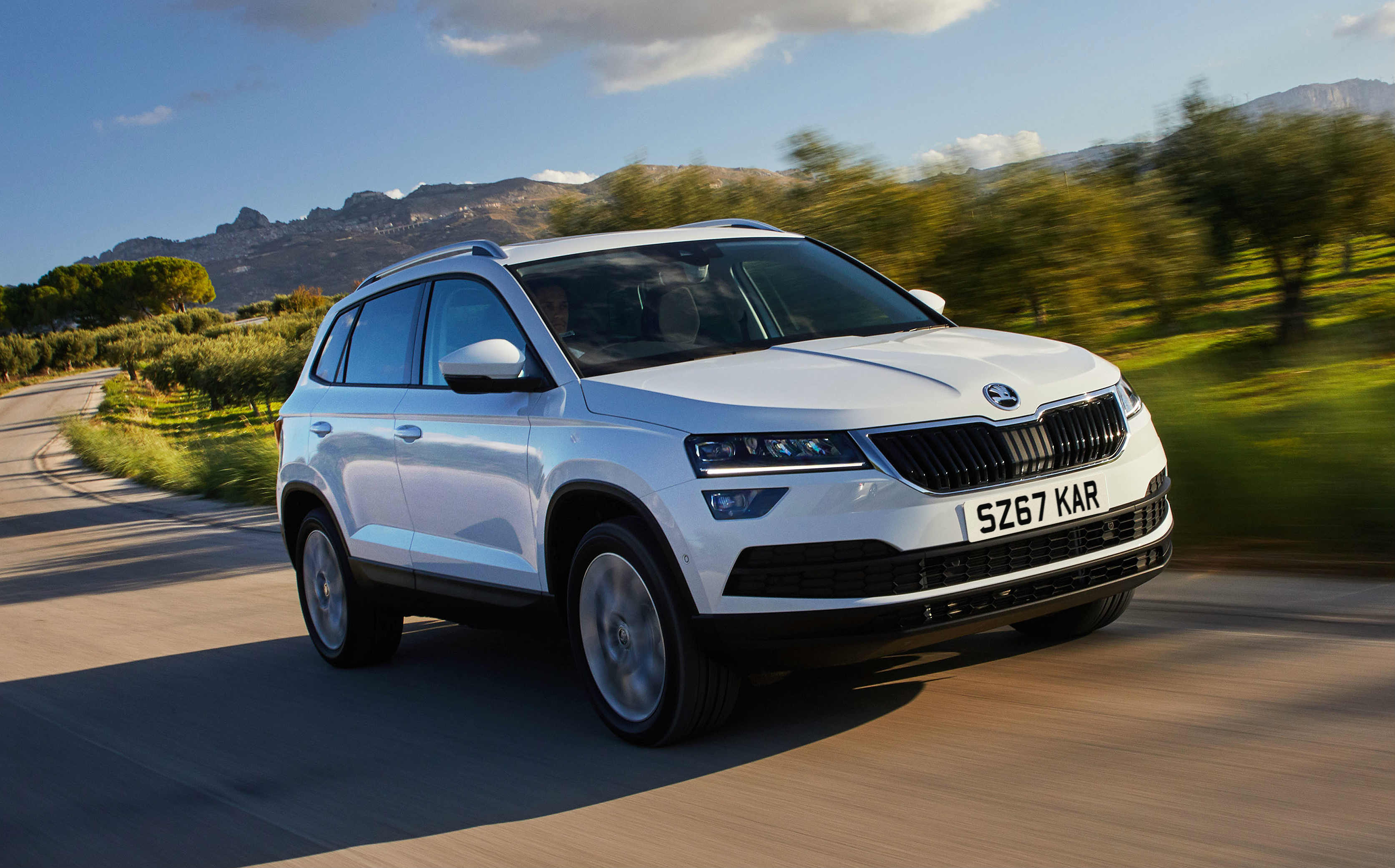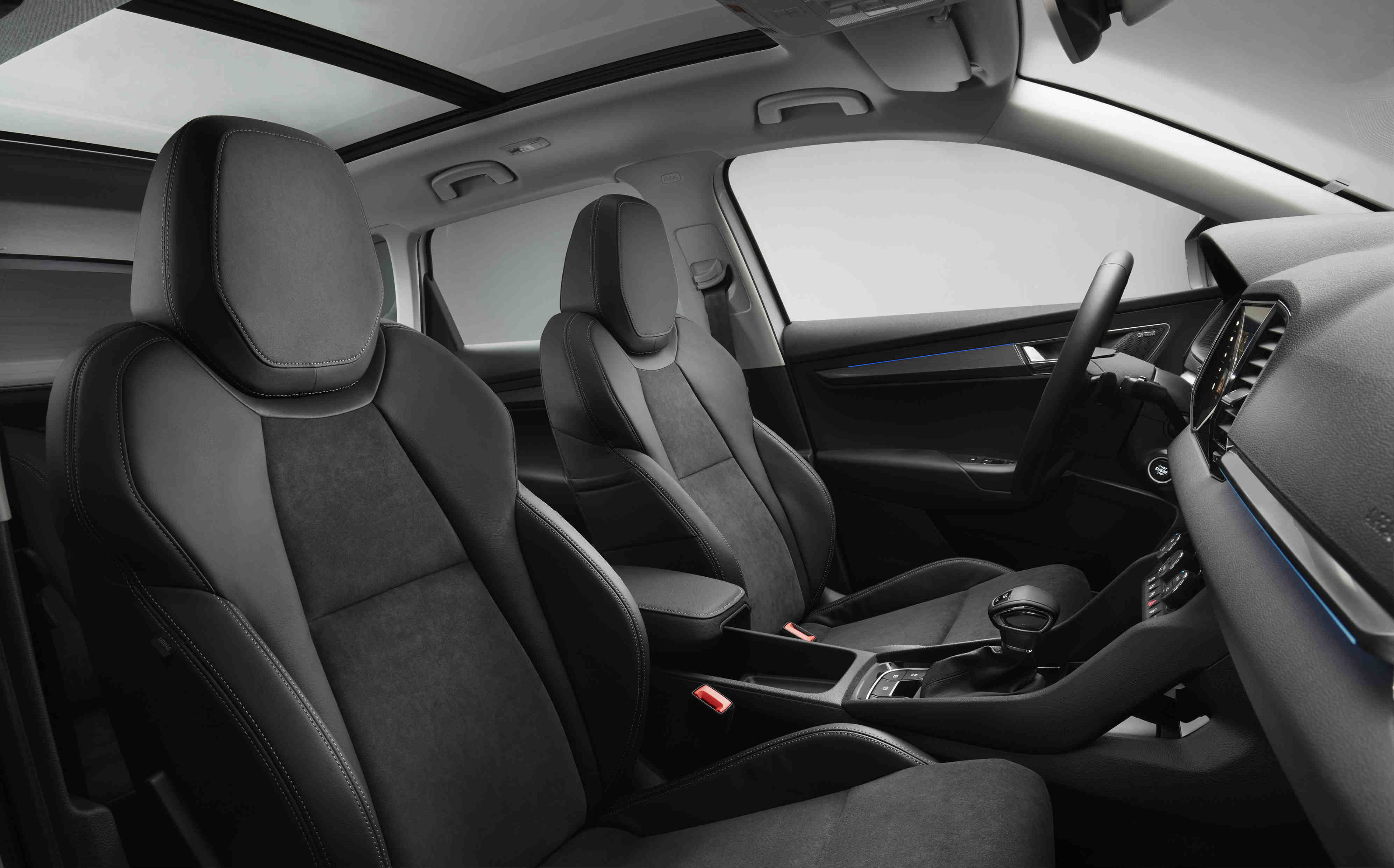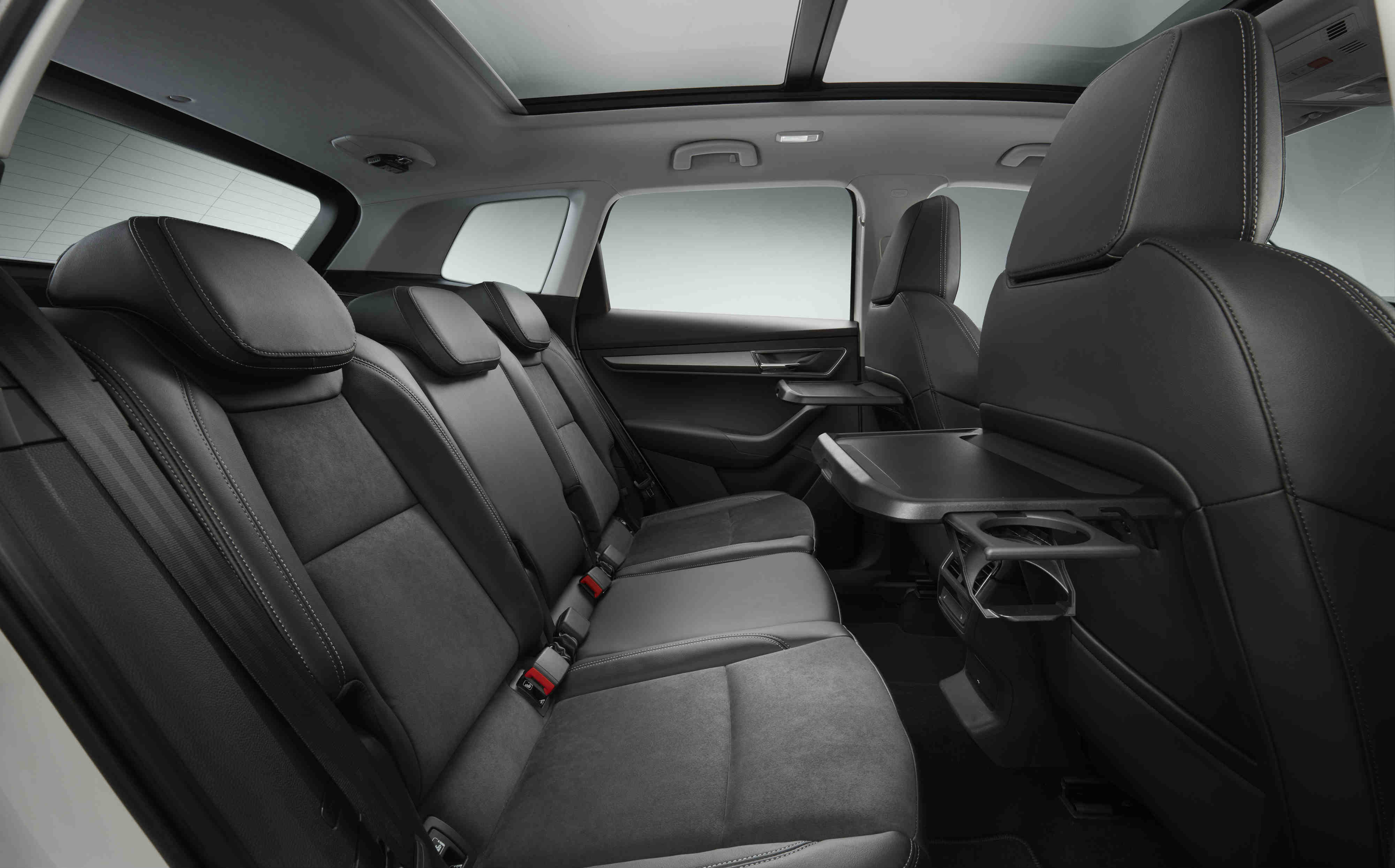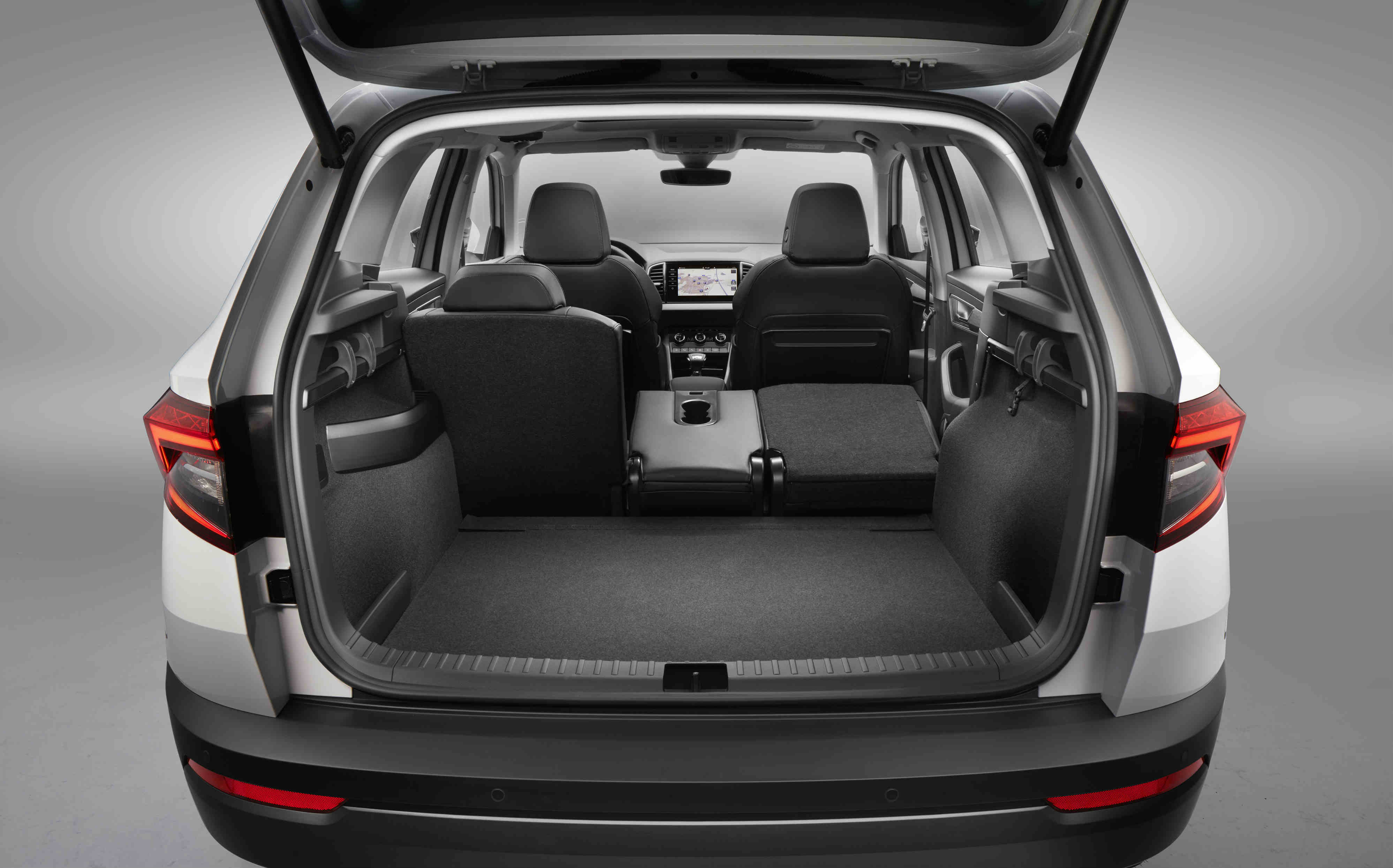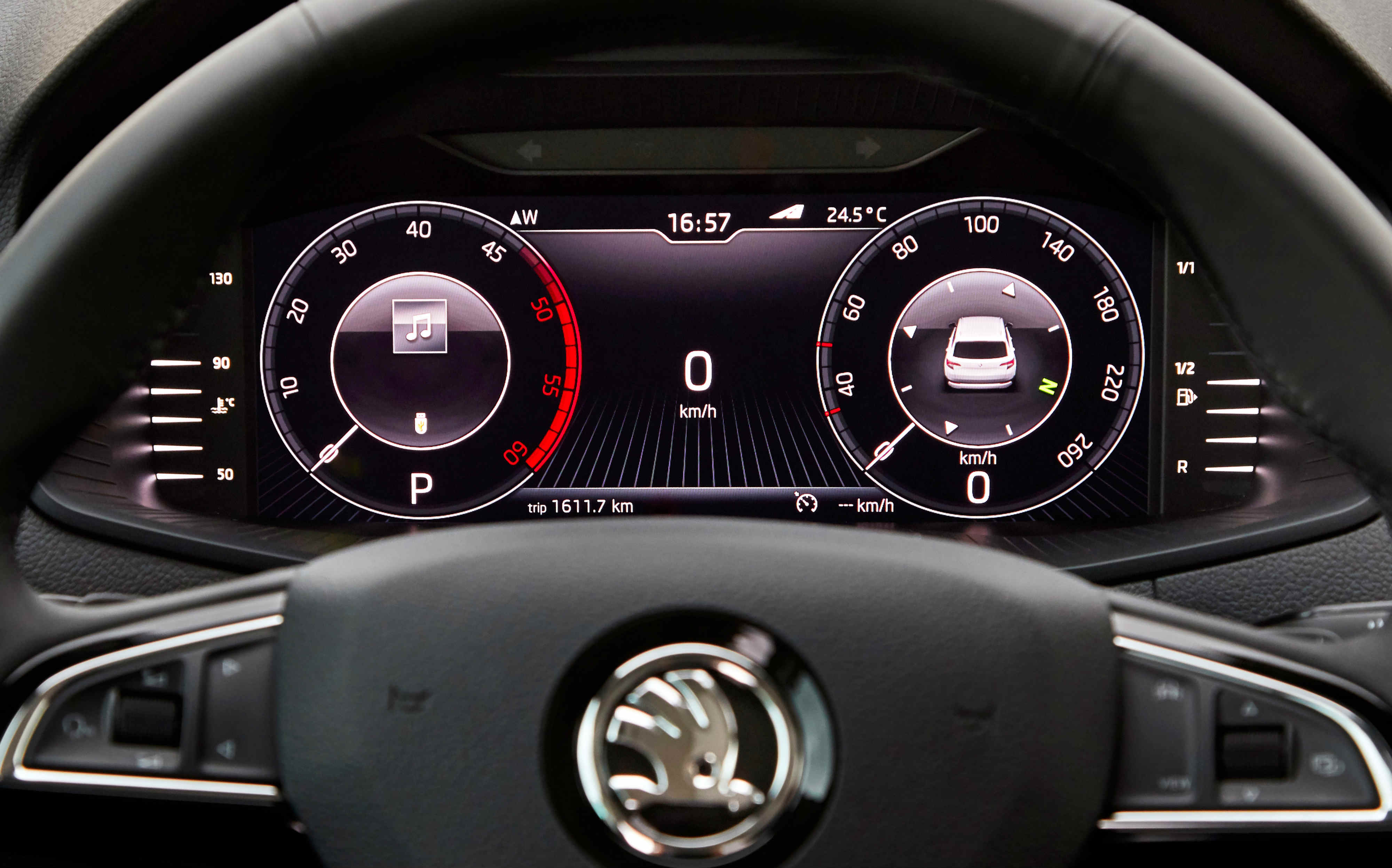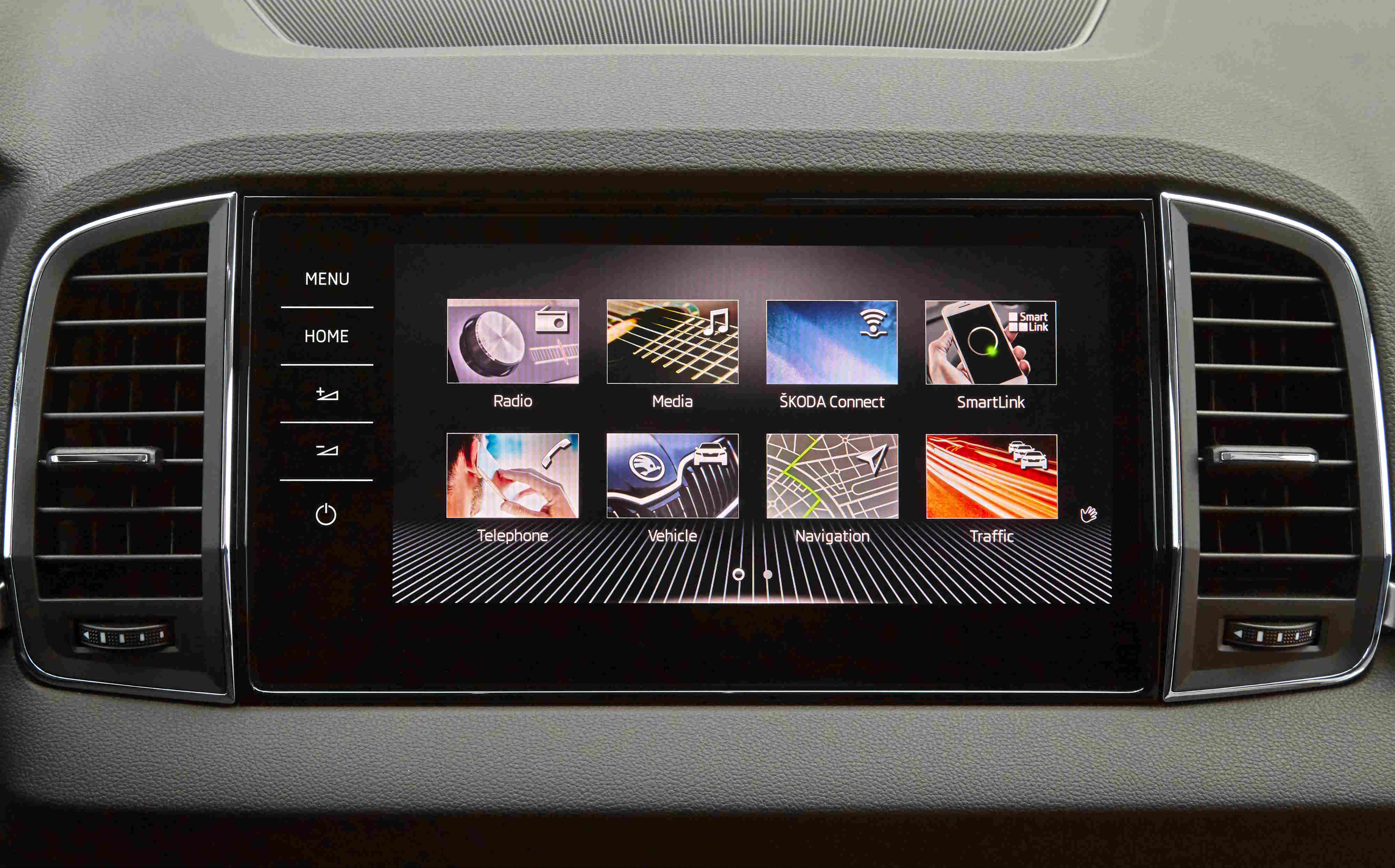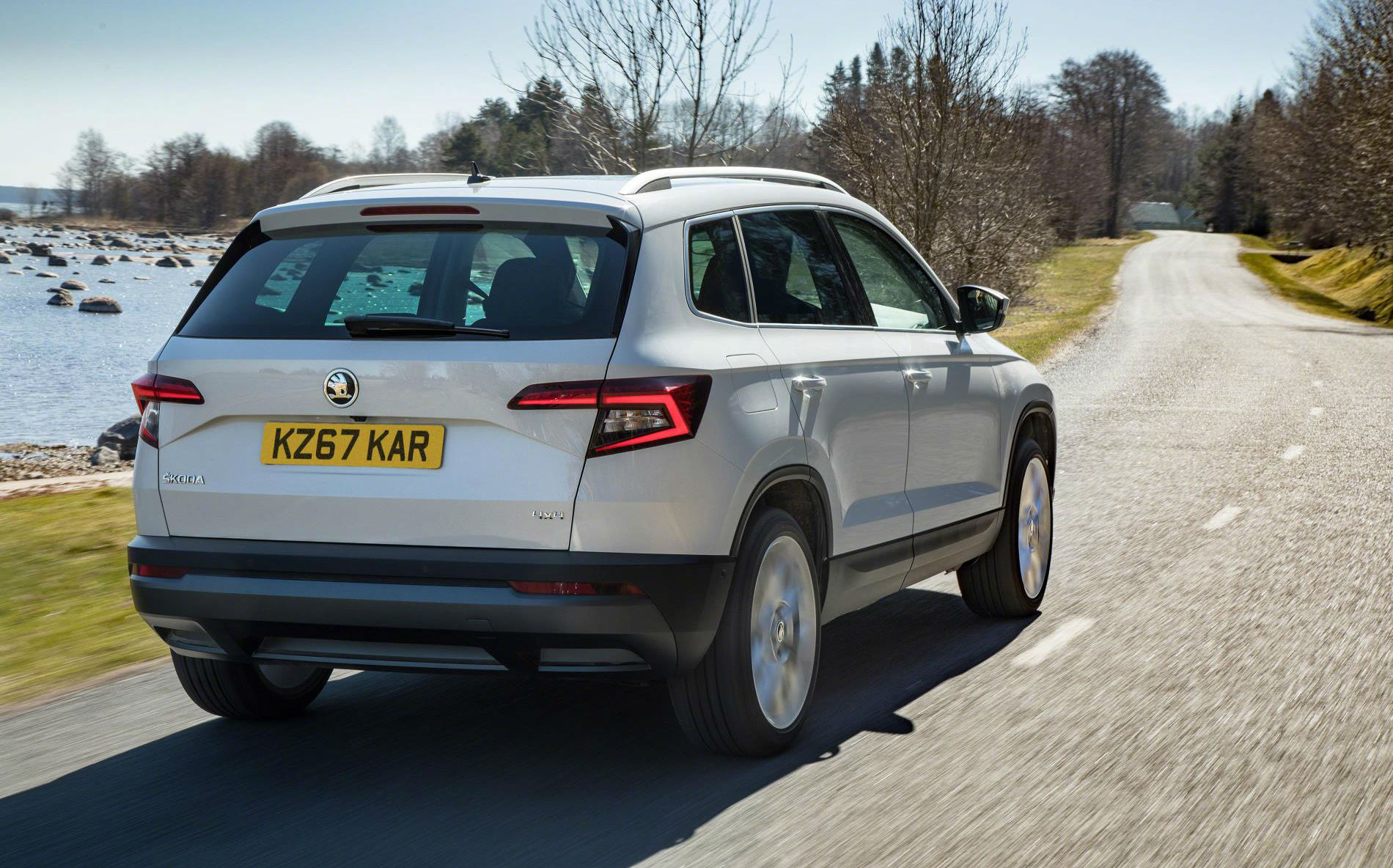Skoda Karoq 2.0 TDI 4x4 review (2018-on)
Compact SUV replaces Yeti but will it be as popular?
THE IDEA of never growing up can seem appealing when you’re young and have your head buried in J. M. Barrie’s Peter Pan. But the reality is we all have to act our age, and not our shoe size, even if you’re a slightly alternative car company with cars that have zany names like Yeti, Roomster and Superb.
Skoda recently turned that corner and started knuckling down, like a student realising that exams are fast approaching and pound-a-pint nights in the uni bar are probably not the best environment for revision.
Steered by executives at the Volkswagen Group – some of the most grey suited, sensible individuals in the motor industry – Skoda is spreading its wings, with a new range of cars that are more mainstream.
Browse NEW or USED cars for sale
‘Sell more cars; hire Paloma Faith to help’ is the gist of the business plan. So quirky models like the Yeti have been ruthlessly culled. In its place come not one but two SUVs (sport utility vehicles); the big, seven-seat Kodiaq and the medium-sized, five-seat Karoq, reviewed here.
Last year, one in five cars sold in Britain was an SUV, and there’s no end in sight to the growth of this part of the car market. So even a Yeti owner can appreciate why the Czech company has steered toward a mainstream approach.
And to look at, the Karoq really is mainstream. Park it alongside a Volkswagen T-Roc and Seat Ateca outside a supermarket car park, cover up the badges and grilles, and ask people to identify the cars and the chances are they couldn’t tell them apart.
However, the family resemblance is undoubtedly reassuring to many drivers, who probably approach the Karoq with the mindset of “It’s a Volkswagen, only cheaper.” That’s almost what it is, but it’s a surprise to find that, actually, there’s precious little difference in price.
So, here’s a car that competes for your hard-earned money against the likes of the Audi Q2, Honda HR-V, Mini Countryman and Toyota C-HR. Prices start from £20,880, you get a three-year warranty and the Karoq should be able to cope with the challenges that the typical family will throw at an SUV – spilt coffee, squashed raisins, kicked seats, nauseous children and smelly dogs.
Here we’re reviewing the popular 2.0 TDI diesel engine, with four-wheel drive, a manual gearbox and posh Edition trim. For drivers interested in a petrol-powered model, see this review of the new 1.5-litre TSI.
Everything about the Karoq’s interior has been learned at the school of Volkswagen, which means it bears a passing resemblance to any number of VW and Seat cars.
The quality and fit and finish is good in all the right places, the large 9.2” touchscreen is excellent, there is Apple CarPlay and the optional Canton sound system gives mum and dad no excuse for not pumping out the kids’ latest Now That’s What I Call Music compilation album for all the family to sing along to/become increasingly annoyed by.
There’s plenty of cabin space for five people, the seats are all comfortable and the rear three individual chairs can slide, be folded or removed entirely, which makes this one of the more versatile SUVs. By sliding those seats forward, the boot space increases from 479 to 588 litres.
In short, it’s a practical family car. And Skoda’s trademark clever touches abound, such as a rubbish bin that can clip onto the door bins, an umbrella under the front passenger seat and rear tray tables with elasticated straps to secure tablets in place.
And for those parents, or grandparents, who have to fit Isofix child seats, the Karoq comes with two in the back and a third – for £35 – on the front passenger seat.
Now to the main attraction: the diesel engine. The 2-litre unit has been the mainstay of the Volkswagen family for years, and in the Karoq it produces 148bhp and only comes with four-wheel drive.
There’s another downside to the diesel, which is that it’s easy to stall
Its claimed CO2 emissions and fuel economy are so close to the 1.5-litre petrol, which has front-wheel drive, that there is precious little advantage to picking it over petrol, regardless of the miles travelled each year.
In this car, at least, it is grumbly at idle, ever-vocal on the move and doesn’t match the effortless pulling power of the 1.5-litre petrol, which delivers all its pulling power lower in the rev range and also sounds nicer and revs higher when you put your foot down. We achieved an average of 42mpg, against a claimed 56mpg.
There’s another downside to the diesel, which is that it’s easy to stall. Often, when trying to move away from low speeds in second gear, the engine would stall, sending the Karoq – which has a stop-start system – into a meltdown and stressing the driver no end.
It’ll tow up to 2,000kg, and the four-wheel drive system would be ideal for hauling a trailer or caravan. But drivers than don’t need to tow would be well advised to switch to the petrol and stick to front-wheel drive.
Even on wet roads, the four-wheel drive system is rarely required, and it’s not like it transforms the Karoq into some sort of sports car when you tackle a winding road. (The steering is far too light for any of that sort of nonsense, anyway.) Sticking to petrol would save drivers more than £3,000 on the sticker price, too.
Perhaps, then, we’re witnessing the demise of diesel? Because the more time spent behind the wheel of the diesel, the more we wondered whether the petrol wouldn’t be the more sensible option for more Karoq buyers.
After all, growing up and turning sensible is something that Skoda seems to have come to terms with.
Tweet to @squarejames Follow @squarejames
| Skoda Karoq 2.0 TDI 4×4 Edition | Skoda Karoq 1.5 TSI Edition | |
| Price | £30,705 | £27,115 |
| Power | 148bhp @ 3500rpm | 148bhp @ 5000rpm |
| Torque | 251Ibft @ 1750rpm | 184bhp @ 1500rpm |
| Economy | 56.5mpg | 51.4mpg |
| CO2 | 132g/km | 125g/km |


